- BlackVoter.Org
- Posts
- BLACKVOTER.ORG #118
BLACKVOTER.ORG #118
Empowering Awareness: Stay Grounded With Blackvoter.org Newsletter!Empowering voices, driving change. 🗳️ Advocate for justice, equity, and representation at BlackVoter.org. Join us as we harness the power of the ballot to shape a future that reflects our values and aspirations. #BlackVoter #EmpowerChange Publish Time
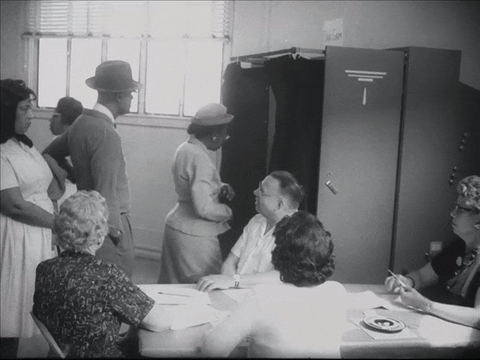


The UC Berkeley campus is buzzing with excitement for the upcoming 2024 Charles Mills Gayley Lecture. This year, renowned professor Stephen Best will be taking the stage to discuss an intriguing topic: Baldwin's Inarticulacy.
In his lecture, Professor Best dives into the world of acclaimed writer James Baldwin, exploring the idea of inarticulacy in his works. Baldwin, known for his powerful and poignant writing, often tackled complex and controversial subjects such as race and identity.
However, Professor Best suggests that there is a deeper layer to Baldwin's writing that goes beyond traditional articulation.
Drawing from Baldwin's essays, novels, and speeches, Professor Best presents a compelling argument for the inarticulacy that exists within Baldwin's work.
This exploration not only offers a fresh perspective on Baldwin's writing, but also raises larger questions about the nature of language and expression.
Whether you're a fan of Baldwin's work or simply interested in exploring the complexities of language, the 2024 Charles Mills Gayley Lecture is an event not to be missed.
Join Professor Stephen Best as he delves into the fascinating world of Baldwin's Inarticulacy.

In this opinion piece, Rachel Stovall, an event manager, entertainer, and community advocate, argues that Black people should not be forced into a Democratic mold. Stovall expresses frustration with the expectation that Black Americans should vote for Democratic candidates just because of their race.
She refers to a book by researchers Ismail K. White and Chryl N.
Laird, which explores how group expectations coerce Black Americans into supporting the Democratic party. Stovall argues that Black communities have a wide range of political beliefs and should not be defined by one political ideology.
She suggests that Black individuals should be encouraged to find their own political identity rather than being coerced or manipulated into conforming to a particular mold. Stovall concludes by emphasizing the importance of inclusivity and individual choice in voting.

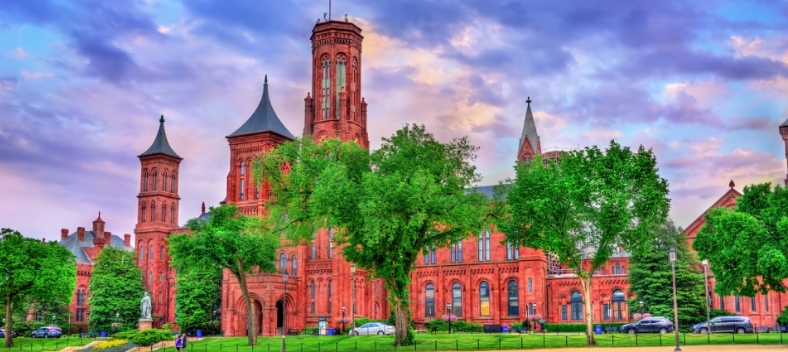
Are you looking for unique and meaningful gifts? Look no further than the Museum of African American History & Culture's online store. From jewelry to clothing, home decor to books, and toys to games, you'll find something for everyone on your list.
Whether you're a history buff, an animal lover, or a space enthusiast, their extensive collection has you covered. The store offers a wide range of products, including necklaces, bracelets, earrings, and more, all beautifully designed and perfect for all occasions.
You can also find clothing made with breezy fabrics and lighter layers, perfect for the warmer days ahead. Plus, their selection of home decor, toys, and books will inspire wonder and curiosity in both children and adults alike.
Don't miss their sale section, where you can find truly special items at discounted prices. Support their efforts and stay up to date with exclusive offers by subscribing to their newsletter.

The article explores the history of racial discrimination in public swimming pools in Canada and the ongoing challenges faced by racialized communities when it comes to accessing swimming spaces. The author shares personal anecdotes, highlighting instances of racist incidents experienced by themselves and others in swimming pools.
They emphasize that swimming while Black, brown, or otherwise racialized is a political act that challenges long-standing systemic barriers and discrimination. The article also draws attention to the public safety issue surrounding access to swimming for racialized children, as drowning deaths are significantly higher among racialized youth in Canada and the US.
The author concludes by urging for efforts to address historic disenfranchisement and to promote greater inclusivity in swimming spaces.

In this article, author David Bacon explores the lives of American Communist Party members in the 20th century, shedding light on their intellectual, political, social, and romantic lives. Bacon argues that these individuals were not the Red Menace that they were often portrayed as, but rather ordinary people with complex lives.
Two recent books, "San Francisco Reds" by Robert Cherny and "Communists in Closets" by Bettina Aptheker, provide valuable insights into the experiences of American Communists and their struggles for social change. Cherny's book offers a detailed account of the Communist Party's presence in San Francisco, while Aptheker's book focuses on the experiences of gay and lesbian party members.
Bacon stresses that understanding the lives of Communist Party members is important for activists fighting for social change today, as it allows them to consider the experiences and knowledge of those who came before them.
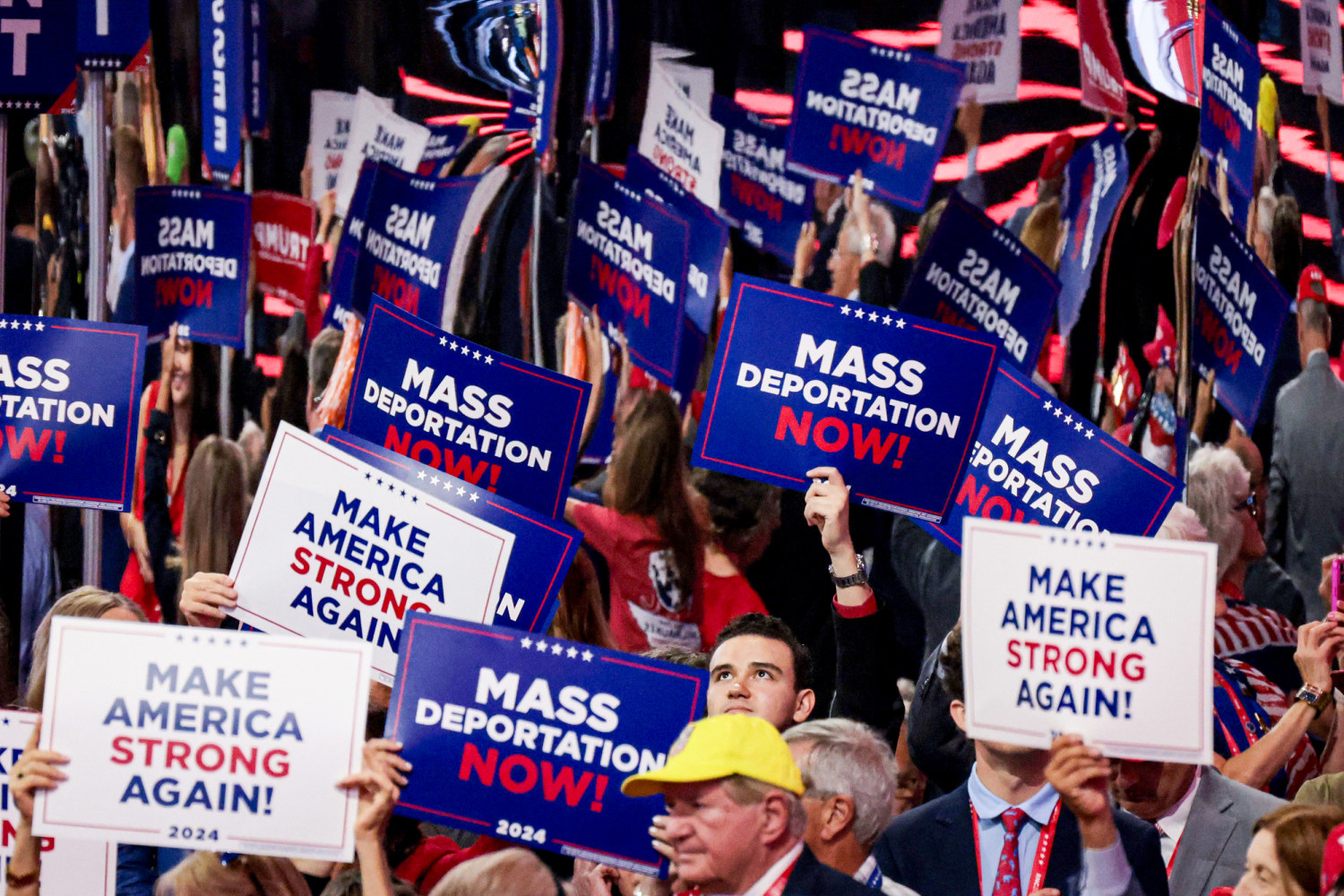
An article discusses how the Trump campaign is using racist and xenophobic imagery to boost its election hopes. The campaign recently posted an image that suggested if Kamala Harris is elected president, American neighborhoods will be overrun with hordes of Black people and immigrants.
The article argues that this tactic is reminiscent of racist imagery from the Jim Crow era and the Ku Klux Klan's newspaper, and it reflects a long-standing American tradition of deploying racist and xenophobic imagery in politics. The article points out that the campaign's use of racist imagery echoes slogans and rhetoric used by the KKK, such as "America First," and highlights other examples throughout history where similar imagery and rhetoric has been used to stoke bigoted fears about changing neighborhoods.
Overall, the article suggests that the Trump campaign's use of racist imagery is part of a larger pattern and speaks to a disturbing and divisive political vocabulary.


Kamala Harris, the Democratic Party's vice presidential nominee, has faced criticism and praise for her record as a prosecutor in California. Critics claim she was either too tough or too soft on crime, while Harris herself has positioned herself as a progressive prosecutor.
Nine key cases from her past have come under scrutiny, revealing the complexities of her approach to law enforcement. These cases include her decision not to pursue the death penalty for a cop killer, a wrongful conviction that cost the city millions, her prosecution of a mentally ill woman who was shot by police, her legal action against a predatory for-profit college, her role in negotiating a major settlement with big banks during the mortgage meltdown, her defense of the death penalty despite personal opposition, her refusal to defend a same-sex marriage ban, her office's support of cheap prison labor, and her defense of a prosecutor who fabricated testimony.
These cases highlight the challenges and controversies surrounding Harris' tenure as a prosecutor and provide insight into her record.

Kamala Harris is generating excitement among Black voters as she prepares to run for president. Residents in Norfolk, Virginia express their support for Harris, stating that her candidacy brings much-needed energy and fresh perspectives.
Political analysts observe a potential shift in the Black vote, similar to what happened in 2008 when Barack Obama ran. Harris's connection to the Black community, as a Howard University graduate and member of Alpha Kappa Alpha Sorority Incorporated, resonates strongly with voters.
While enthusiasm is high, it is important for Harris to translate that excitement into actual votes. Republicans are adjusting their strategies in response to Harris's nomination, and Democrats are optimistic about her impact.
Voter turnout and engagement will be crucial in the upcoming election, with a focus on identity, youth engagement, and community participation. The race is shifting with Harris at the forefront, and the outcome of the election will reflect the desires and hopes of diverse communities eager for change.

Black fraternities and sororities in the US, collectively known as the Divine Nine, are using social media and private messaging platforms to encourage voter turnout among the Black community. These organizations are working to combat voter suppression and increase engagement in communities where voting barriers are a concern.
On social media platforms such as Watch the Yard, members of the Divine Nine are sharing posts, videos, and voter registration links to reach a wider audience. Furthermore, they are also coordinating in private chat groups, such as a secret GroupMe chat with over 8,000 members in Alpha Kappa Alpha (AKA), to discuss strategies and plan voter outreach efforts.
The Divine Nine's involvement in voter mobilization is part of a long tradition of civic engagement, as they have been fighting for voting rights for decades. Their work is crucial in addressing disparities in voter turnout between people of color and white voters, particularly with the barriers faced by Black Americans, such as strict ID laws and gerrymandering.

During a recent town hall meeting, employees of New Hanover County Schools (NHCS) expressed their desire for more action and less politics from the board. The meeting focused on district climate, student behavior, and the search for a new superintendent.
Participants emphasized the need to value all staff at all levels and expressed dissatisfaction with district leadership and the board. A climate survey revealed that 65% of employees felt that the school board did not value their input or expertise, and 80% believed the board was out of touch with the realities of the classroom.
Participants at the town hall also discussed the desired qualities for the new superintendent, including someone who is experienced, approachable, and visible in the schools. The board expressed a willingness to create forums and open lines of communication to address these concerns and improve the district.

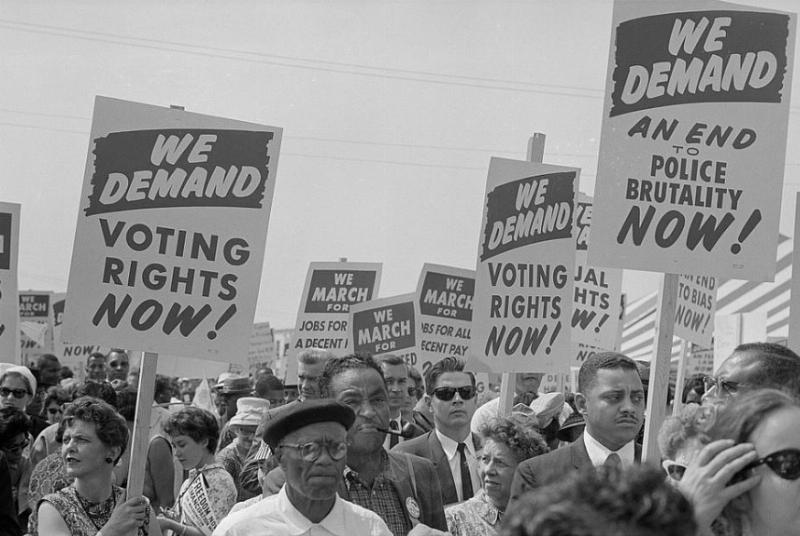
The African-American struggle for political equality has been a long and challenging one, but significant progress has been made since the enactment of the Voting Rights Act of 1965. However, some leading Democrats, including President Biden and Vice-President Kamala Harris, are now pushing for the implementation of the John R.
Lewis Voting Rights Advancement Act of 2024. While this may sound like a positive step toward equality, the proposed legislation is actually a return to a time when black voters were excluded through devious tactics.
The act is vague and aims to maximize black voting by loosening election rules, which opens the floodgates for fraud. Moreover, as America's demographic landscape continues to shift, Hispanics may become the future beneficiaries of this act, leaving black voters at a disadvantage.
Ultimately, winning elections is not the sole path to progress, and it may be time to reconsider where efforts for racial equality should be focused.
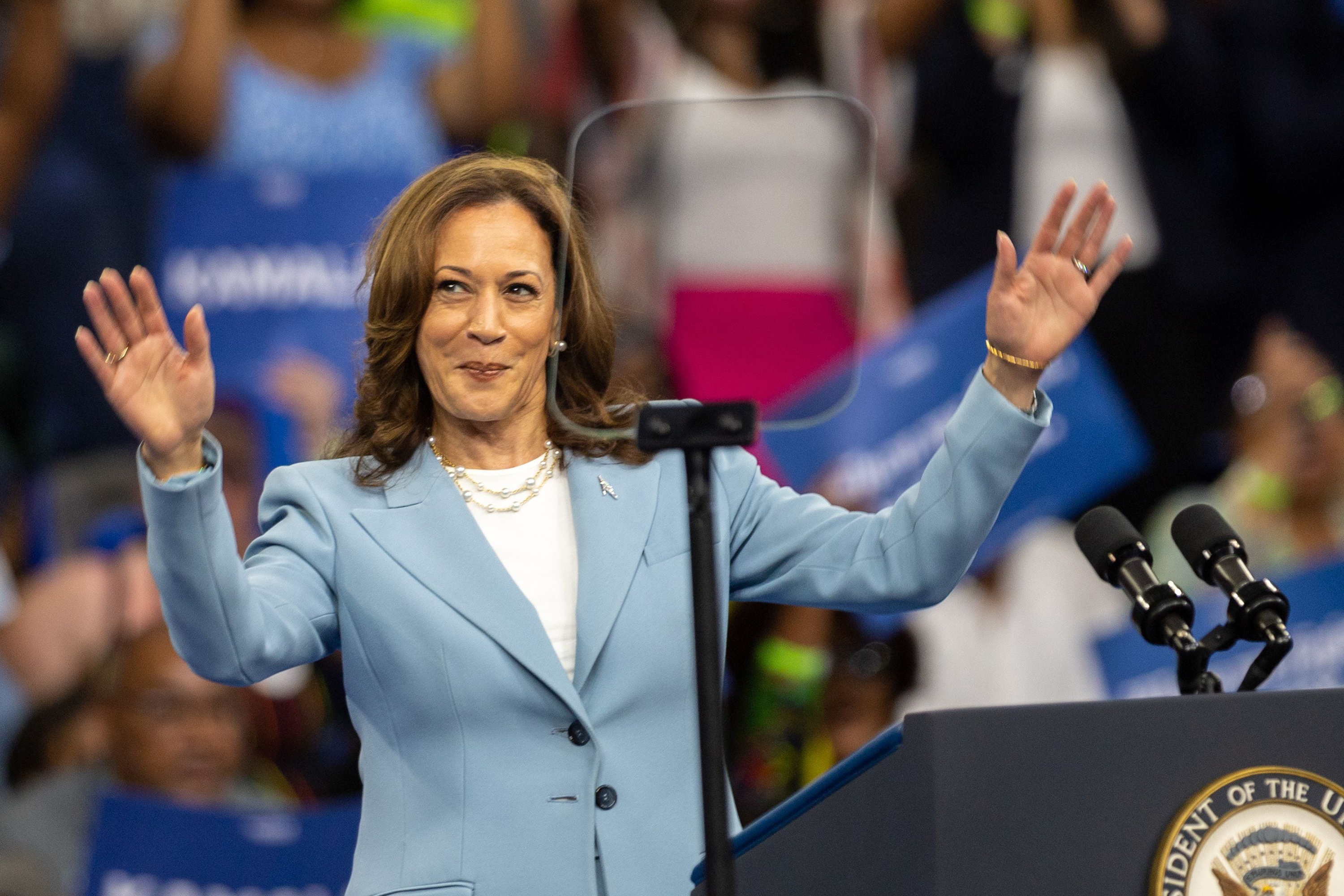
This opinion piece argues that former President Donald Trump's attacks on Vice President Kamala Harris, questioning her Black identity and dismissing her as a "diversity hire," are not only factually incorrect but also deeply damaging. The author, an African American, states that these statements perpetuate harmful stereotypes and undermine the significant progress made towards racial equality and representation in American politics.
The danger lies in the potential to divide and destabilize society, pitting communities against each other and eroding the very fabric of democracy. The article goes on to highlight Trump's troubling record of racist behavior and policies, contrasting it with Harris' commitment to addressing the concerns of African Americans.
It concludes by emphasizing the importance of rejecting Trump's racist rhetoric and baseless attacks in favor of a future that upholds fairness, equity, and diversity.

The article explores the legacy of black voter suppression in the United States and reflects on the progress that has been made, as well as the challenges that still exist today. From the days of Jim Crow laws to modern tactics like gerrymandering and voter ID requirements, efforts to disenfranchise black voters have evolved but continue to persist.
The history of voter suppression is deeply ingrained in the country's political landscape and reflects the enduring struggle of black Americans for the right to vote. The article highlights key moments such as the Civil Rights Movement and the passing of the Voting Rights Act, but also points to ongoing challenges, such as the Supreme Court's decision to weaken the Voting Rights Act in 2013 and the issue of felony disenfranchisement.
The article emphasizes the importance of protecting voting rights for all citizens and acknowledges the crucial role of black women in the fight for voting rights, with examples like Stacey Abrams and LaTosha Brown. It concludes by reminding readers that the pursuit of equality and the protection of voting rights are continuous efforts that require ongoing vigilance.
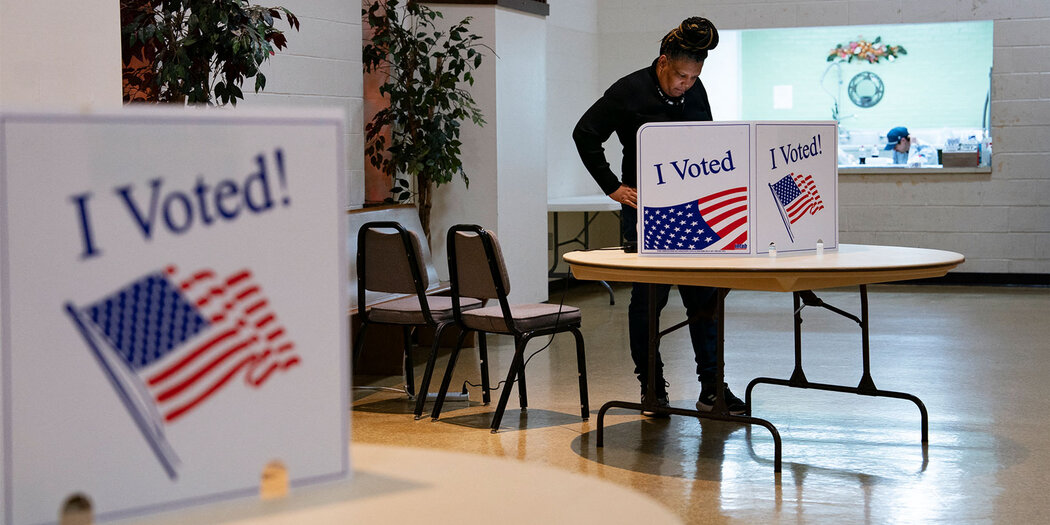
In nine battleground states, voting laws have changed significantly since the 2020 presidential election. Many states have implemented restrictive measures, particularly targeting absentee voting.
However, there have also been efforts to expand voting access in some states. In Arizona, for example, new restrictive laws make it more difficult to correct absentee ballot signature defects and address noncitizen voting.
On the other hand, the state also passed laws that eliminate the waiting period for individuals with multiple felony convictions to have their voting rights restored and expand early in-person voting. In Florida, new laws impose constraints on mail voting and voter registration, while in Michigan, there has been a significant expansion of voting access with multiple new laws.
Nevada has increased opportunities for voter registration and mail voting, while North Carolina has added barriers to voting, including changes to mail ballot deadlines and same-day registration. Pennsylvania has seen little change in voting laws since 2020, largely due to gubernatorial vetoes of restrictive bills.
In Texas, restrictive measures have been enacted, including increased voter ID requirements and limitations on early voting opportunities, but there have also been some laws that expand access, such as disability accommodations and extended mail ballot receipt deadlines. Wisconsin has experienced little change in voting laws, largely due to vetoes by the governor.
Overall, the landscape of voting laws in these battleground states is a mix of restrictions and expansions, making voting rights an important issue to watch.
